On Meditation Mondays we’ve been studying the big philosophical thinkers of all time on Meditation Mondays, and today, let’s look at the next 7 of the 19 most well known thinkers of all time. As before, we’ll specifically explore what they thought about God in human history.
The next 8 big thinkers—
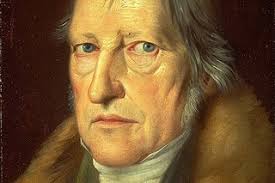
Georg Wilhelm Friedrich Hegel (1770 – 1831) Hegel, a German, aimed to turn the study of philosophy into a comprehensive science and re-create or rephrase Christian truth. He regarded all of human history as an argument, something to be disputed and wrestled with; and he believed the wrestling with and among the absolutes would bring forth life. (However he defined “life.”)
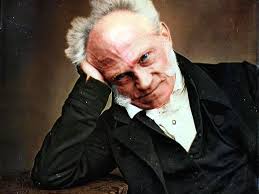 Arthur Schopenhauer (1788 – 1860) A German philosopher, like Hegel, Schopenhauer is considered to be a true pessimist. He believed life is evil to the core, and pain and suffering are unavoidable. He is the father of Existentialism, although the Merriam-Webster Dictionary defines Existentialism as chiefly a 20th Century philosophy.
Arthur Schopenhauer (1788 – 1860) A German philosopher, like Hegel, Schopenhauer is considered to be a true pessimist. He believed life is evil to the core, and pain and suffering are unavoidable. He is the father of Existentialism, although the Merriam-Webster Dictionary defines Existentialism as chiefly a 20th Century philosophy.
Existentialism, according to Merriam-Webster, defines it as
“a movement embracing diverse doctrines but centering on analysis of individual existence in an unfathomable universe and the plight of the individual who must assume ultimate responsibility for acts of free will without any certain knowledge of what is right or wrong or good or bad.”
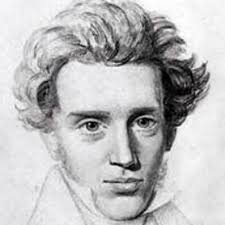 Soren Kierkegaard (1813 – 1855) Kierkegaard, a Dane and deeply religious thinker, believed that God’s existence cannot be proven. But he believed that a religious leap of faith could make our lives bearable and meaningful. He is regarded as a Theist—someone who believes in a God as the creative source of the human race and the world who transcends the world but is immanent (being within the limits of possible experience or knowledge) in it. Most theists regard God as a creator who stands back from His creation without getting too involved it.
Soren Kierkegaard (1813 – 1855) Kierkegaard, a Dane and deeply religious thinker, believed that God’s existence cannot be proven. But he believed that a religious leap of faith could make our lives bearable and meaningful. He is regarded as a Theist—someone who believes in a God as the creative source of the human race and the world who transcends the world but is immanent (being within the limits of possible experience or knowledge) in it. Most theists regard God as a creator who stands back from His creation without getting too involved it.
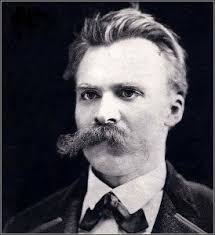
Friedrich Nietzsche (1844 – 1900) Another German thinker, Nietzsche proclaimed that God is dead and that humans are creative and can use their own strength and intelligence to give their lives meaning. God would be unnecessary for that. He was considered to be exceptionally brilliant and prophetic.
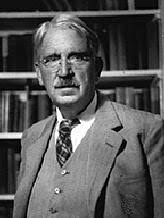 John Dewey (1859 – 1952) An American! Dewey was considered to be a pragmatist—someone guided by practicality and that “the function of thought is to guide action.” He considered democracy to be a way of life, and that democracy should be promoted and pursued by a rational and effective educational system. Dewey has had a profound impact on both the American educational and political systems.
John Dewey (1859 – 1952) An American! Dewey was considered to be a pragmatist—someone guided by practicality and that “the function of thought is to guide action.” He considered democracy to be a way of life, and that democracy should be promoted and pursued by a rational and effective educational system. Dewey has had a profound impact on both the American educational and political systems.
Dewey was one of the 34 signers of the 1933 Humanist Manifesto. Although humanism focuses on a positive attitude about the world, and is centered on human experiences, thought, and hope, this philosophy claims that moral values are properly founded on human nature (which, they believe, is essential good), and experience alone.
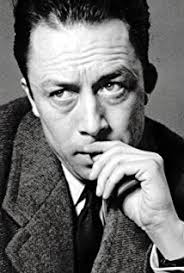 Albert Camus (1913 – 1960) Camus was an atheist who was an existentialist. He believed humans must establish their own dignity, despite a meaningless life.
Albert Camus (1913 – 1960) Camus was an atheist who was an existentialist. He believed humans must establish their own dignity, despite a meaningless life.
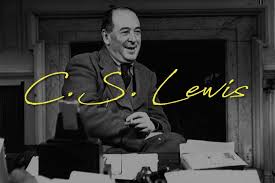 C.S. Lewis (1898 – 1963) A former atheist, the British and Oxford don, Lewis, became the greatest Christian apologist of the 20th Century. He is the esteemed author of the famous Chronicles of Narnia series, as well as Mere Christianity, and was a close friend of the Lord of the Rings trilogy author, J.R.R. Tolkien. Both men were members of the Inklings, an informal literary discussion group associated with Oxford, England.
C.S. Lewis (1898 – 1963) A former atheist, the British and Oxford don, Lewis, became the greatest Christian apologist of the 20th Century. He is the esteemed author of the famous Chronicles of Narnia series, as well as Mere Christianity, and was a close friend of the Lord of the Rings trilogy author, J.R.R. Tolkien. Both men were members of the Inklings, an informal literary discussion group associated with Oxford, England.
But what about Jesus? And Karl Marx. Darwin? They’re on the list, so you won’t want to miss next week!
Next week we’ll look at these other movers and shakers who’ve influenced our thinking and helped shape our world views. And see how our beliefs align with or contradict theirs.
Until then,
Have fun thinking deep thoughts!
Blessings,
Andrea
May you prosper in all things and be in health, just as your soul prospers (3 John 2).
Photos courtesy of Google Images
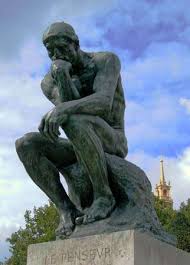

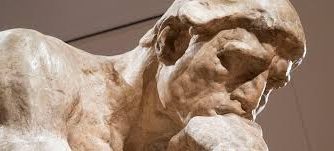
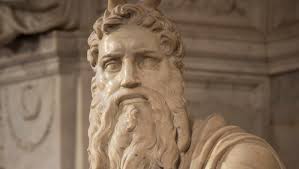
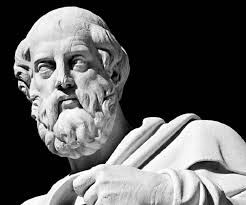
 ARISTOTLE (384 – 322 B.C.)—Also a Greek, Aristotle was the first to systematically describe physics, biology, psychology, and the standards of literature. He was also the first true empiricist—one who believes in the scientific method of forming a hypothesis from observations and beliefs, asking a question, designing research to test the hypothesis, doing the research to gather data, and forming a conclusion based on the research findings. He is also identified as one of the first agnostics—someone unsure about whether there really is a living God.
ARISTOTLE (384 – 322 B.C.)—Also a Greek, Aristotle was the first to systematically describe physics, biology, psychology, and the standards of literature. He was also the first true empiricist—one who believes in the scientific method of forming a hypothesis from observations and beliefs, asking a question, designing research to test the hypothesis, doing the research to gather data, and forming a conclusion based on the research findings. He is also identified as one of the first agnostics—someone unsure about whether there really is a living God.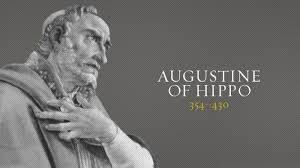 AUGUSTINE (A.D. 354 – 430)—While St. Augustine of Hippo originally struggled to “find” faith in Christianity, he later became one of the most important and well-known theologians in Christian history. He also addressed the tug-of-war between science and religion.
AUGUSTINE (A.D. 354 – 430)—While St. Augustine of Hippo originally struggled to “find” faith in Christianity, he later became one of the most important and well-known theologians in Christian history. He also addressed the tug-of-war between science and religion.

 DAVID HUME (1711 – 1776)—Hume, a Scotsman, thought the entire world is formed from the perception of our sensory experiences and believed everything had to be measured and replicated in order to believed, He doubted that we could ever really know anything with certainty. Consequently, he believed that the miraculous, and whether God existed, were irrelevant discussions.
DAVID HUME (1711 – 1776)—Hume, a Scotsman, thought the entire world is formed from the perception of our sensory experiences and believed everything had to be measured and replicated in order to believed, He doubted that we could ever really know anything with certainty. Consequently, he believed that the miraculous, and whether God existed, were irrelevant discussions.
